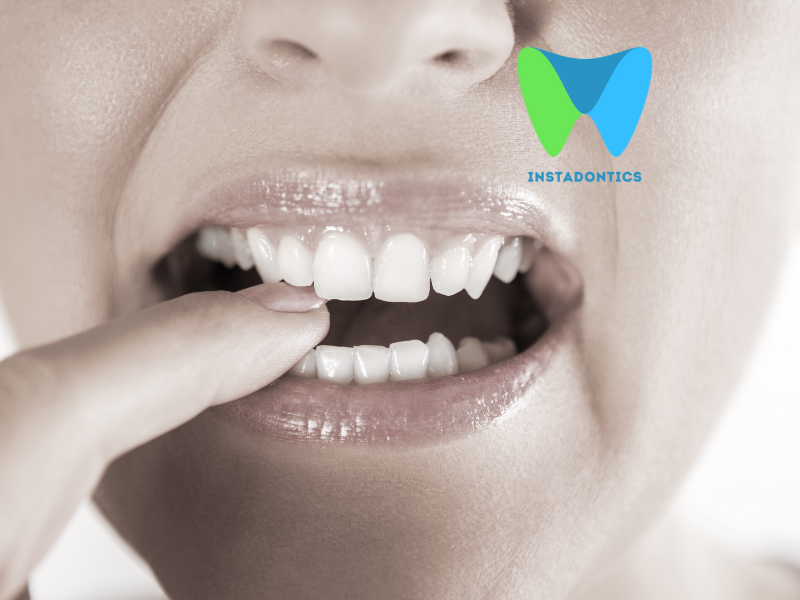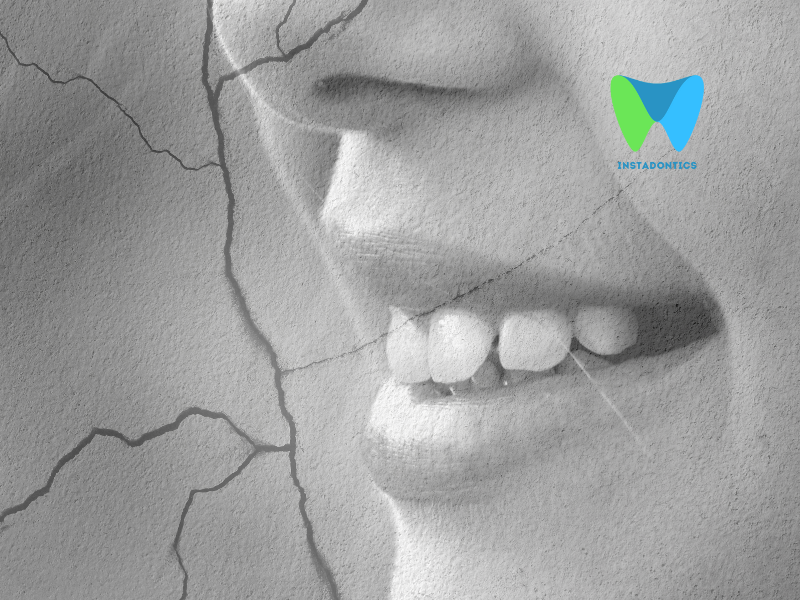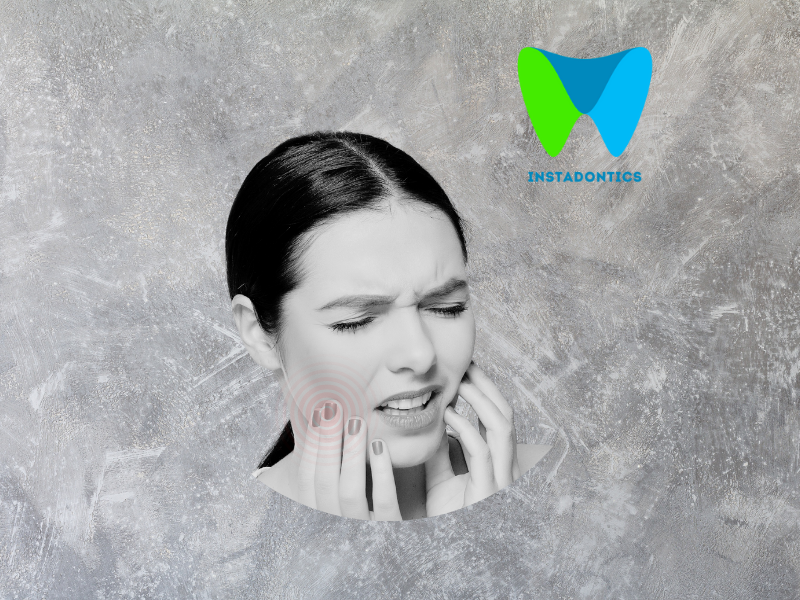Morning tooth pain can be an alarming experience. While it may seem like a random issue, morning tooth pain is surprisingly common and can stem from a variety of causes. From grinding your teeth to issues with your gums, the discomfort could indicate an underlying dental problem that requires attention. Understanding why your teeth hurt in the morning can help you take the right steps to address it and avoid further pain. In this guide, we will explore the potential causes of morning tooth pain, debunk common myths, provide practical tips for relief, and back everything up with scientific insights to help you take control of your oral health.
Possible Causes of Morning Tooth Pain
There are several potential causes of morning tooth pain, each with different mechanisms behind the discomfort. Understanding these causes can help you identify the source of your pain and take appropriate action to alleviate it.
Teeth Grinding (Bruxism)
One of the most common causes of morning tooth pain is bruxism, the habit of grinding or clenching your teeth, often during sleep. This condition can lead to tooth sensitivity, jaw pain, and even worn-down enamel, which can be painful.
Research Insight: According to a study published in the Journal of Clinical Sleep Medicine, bruxism is linked to stress, sleep disorders, and certain medications. The pressure exerted during grinding can lead to tooth fractures, enamel erosion, and soreness upon waking.
How to address it:
- Nightguard: A custom-fitted nightguard can protect your teeth from grinding during sleep and alleviate the associated pain.
- Stress Management: If stress is contributing to bruxism, engaging in relaxation techniques like meditation, yoga, or deep-breathing exercises before bed can help reduce the grinding.
Gum Disease
Gum disease (gingivitis or periodontitis) can cause discomfort in the teeth and gums, especially when you wake up. When gums become inflamed, they can be more sensitive to touch or pressure, leading to morning tooth pain.
Research Insight: The American Academy of Periodontology highlights that untreated gum disease can lead to tooth mobility, receding gums, and increased sensitivity. In some cases, the pain from gum disease can feel like toothache, especially in the morning when your body has been in a resting position for hours.
How to address it:
- Good Oral Hygiene: Brushing and flossing regularly can help prevent gum disease. Pay attention to any signs of gum inflammation or bleeding.
- Professional Cleanings: Visit your dentist for routine cleanings to remove plaque and tartar buildup that can contribute to gum disease.
Sinus Issues
Morning tooth pain can be due to sinus pain. Sinus pressure from an infection or seasonal allergies can also cause tooth pain, particularly in the upper teeth. When the sinuses are congested, the pressure can radiate to the roots of the upper teeth, causing discomfort when you wake up.
Research Insight: A study in the Journal of the American Dental Association found that sinus infections often result in referred pain to the upper teeth, which can be mistaken for a dental issue. This is particularly true for molars and premolars, which have roots close to the sinus cavities.
How to address it:
- Sinus Relief: Over-the-counter medications like antihistamines, nasal sprays, or steam inhalation can help alleviate sinus congestion and reduce tooth pain.
- Consult a Doctor: If sinus issues persist or worsen, consult with a healthcare provider to determine the cause and find an appropriate treatment.
Tooth Sensitivity
Morning tooth pain may also be caused by tooth sensitivity. If your enamel has worn down or your gums have receded, the underlying dentin of your teeth can become exposed, leading to heightened sensitivity to temperature changes, pressure, and touch.
Research Insight: According to the Journal of Dentistry, tooth sensitivity is a common issue, especially in individuals who consume acidic foods or drinks, or who have improperly brushed their teeth. The loss of enamel can result in sharp pain when exposed to cold air or water in the morning.
How to address it:
- Desensitizing Toothpaste: Using a toothpaste specifically designed for sensitive teeth can help reduce discomfort over time.
- Proper Brushing Technique: Avoid brushing too hard and use a soft-bristled toothbrush to prevent further enamel erosion and gum recession.
Common Myths About Morning Tooth Pain
Before diving into the causes of morning tooth pain, it’s essential to separate fact from fiction. There are several misconceptions that might lead to confusion about this issue. Let’s debunk some of the most common myths:
- Myth: Morning tooth pain is just a normal part of waking up.
- Fact: While it’s true that some people experience mild discomfort when they wake up, consistent or severe morning tooth pain is not normal. Persistent pain could be a sign of underlying dental issues such as teeth grinding (bruxism), gum disease, or cavities that need professional attention.
- Myth: If my teeth hurt in the morning, it means I need a filling.
- Fact: While cavities are a possible cause of morning tooth pain, they are not the only reason. Other factors, such as gum disease or jaw problems, can also contribute to discomfort. It’s crucial to have a dentist evaluate the source of your pain before jumping to conclusions.
- Myth: I should only worry about tooth pain if it’s constant throughout the day.
- Fact: Morning tooth pain can be just as concerning, especially if it’s associated with other symptoms like jaw pain or headaches. Addressing the problem early can help prevent more serious dental issues from developing.
Types of Tooth Pain and Their Nature
Tooth pain can manifest in various ways, and understanding the different types of pain can help you identify the underlying cause. Each type of tooth pain is unique, with its own characteristics and potential triggers. By recognizing the nature of the pain, you can better understand whether it’s due to a minor issue or something that requires professional attention. Below are the most common types of tooth pain, their characteristics, and the conditions that might be responsible.
1. Sharp, Sudden Pain
Nature of Pain:
- This type of pain is often very intense and comes on suddenly. It may be triggered by biting down, eating hot or cold foods, or even simply touching the affected tooth.
- Sharp pain can be brief but highly uncomfortable, and it tends to come and go.
Possible Causes:
- Cavities (Dental Caries): A cavity that has formed deep within the tooth can expose the nerves, causing sudden, sharp pain when pressure is applied or when the tooth is exposed to temperature changes.
- Cracked Teeth: A crack in the tooth can lead to sharp pain, especially when chewing or biting down. The crack may also allow food particles or bacteria to enter, leading to further sensitivity.
- Tooth Sensitivity: This occurs when the enamel protecting the tooth wears down or the gums recede, exposing the sensitive dentin underneath. Hot or cold foods and drinks can trigger sharp pain.
Treatment:
- See a dentist to determine if you need a filling, crown, or other restorative treatments.
- Use desensitizing toothpaste to help alleviate sharp pain related to tooth sensitivity.
2. Dull, Throbbing Pain
Nature of Pain:
- Dull, throbbing pain is often persistent and continuous. It may feel like a mild ache or pressure inside the tooth or along the gumline.
- This pain is usually more noticeable when you’re lying down, as blood flow to the head increases, intensifying the pain.
Possible Causes:
- Abscessed Tooth (Dental Abscess): An infection in the tooth or gums can lead to throbbing pain. The infection causes inflammation, and as pressure builds in the affected area, it creates a dull, throbbing sensation.
- Gum Disease (Gingivitis or Periodontitis): Chronic gum infection can cause pain that feels dull and aching. As gum disease progresses, it can lead to damage in the surrounding tissue, causing discomfort.
- Tooth Decay Close to the Nerve: When tooth decay gets near the nerve of the tooth, it can lead to throbbing pain that persists over time, especially when exposed to temperature changes or pressure.
Treatment:
- For an abscess, antibiotics and a possible root canal may be necessary. A dentist can drain the infection and relieve the pressure.
- Gum disease can be treated with improved oral hygiene practices, professional cleanings, and, in more severe cases, gum surgery.
3. Localized Pain or Sensitivity
Nature of Pain:
- Localized pain is confined to a specific tooth or area of the mouth. It’s often triggered by specific actions like chewing or biting into certain foods.
- This pain may come and go, but it is not widespread throughout the mouth.
Possible Causes:
- Gum Inflammation or Recession: If the gums around a specific tooth are inflamed or receded, they may cause localized pain. This is especially true if food or bacteria become trapped in the gumline.
- Recent Dental Procedures: After getting a filling, crown, or any dental work, it’s normal to experience some localized discomfort or sensitivity in the treated area.
- Tooth Eruption (in Children or Teenagers): In younger individuals, the eruption of new teeth, such as wisdom teeth or molars, can cause localized pain, swelling, or sensitivity.
Treatment:
- For gum inflammation, practice good oral hygiene and use a soft-bristled toothbrush to avoid further irritation.
- After dental procedures, follow your dentist’s aftercare instructions to minimize discomfort.
- In cases of tooth eruption, use over-the-counter pain relievers and warm saltwater rinses for relief.
4. Radiating Pain
Nature of Pain:
- Radiating pain feels like it spreads out from the initial source and can affect neighboring areas. This type of pain can travel through the jaw, face, or even down into the neck.
- The pain may start in the tooth or gum but gradually worsen and spread to surrounding tissues.
Possible Causes:
- Tooth Abscess or Infection: A tooth infection can cause pain that spreads across the jaw and into the head. If left untreated, the infection can spread further and cause more widespread discomfort.
- Jaw Problems (Temporomandibular Joint Disorder or TMJ): Issues with the jaw joint can lead to radiating pain that affects the teeth, face, and neck. TMJ disorders can cause pain that seems to originate from the teeth but is actually related to jaw function.
- Heart Problems: In some cases, radiating pain may be a sign of heart problems, such as a heart attack. This type of pain may be confused with dental pain due to the sensation traveling down the left side of the body, including the teeth.
Treatment:
- In case of an abscess or infection, immediate dental intervention is needed to treat the infection and relieve the pain.
- For jaw problems, see a dentist or specialist to evaluate the jaw’s alignment and provide treatment options like jaw exercises or a mouthguard.
5. Pain Triggered by Temperature
Nature of Pain:
- This type of pain is triggered when the teeth are exposed to extreme temperatures, such as hot foods, cold beverages, or even cold air.
- The pain can be sudden and sharp, often making eating and drinking uncomfortable.
Possible Causes:
- Tooth Sensitivity: Tooth sensitivity is one of the most common reasons for temperature-related pain. The exposed dentin of a tooth is more sensitive to hot and cold temperatures.
- Receding Gums: When the gums recede, they expose the tooth roots, which are more sensitive to temperature changes than the rest of the tooth.
- Cracked or Worn Teeth: A cracked tooth can allow hot or cold substances to reach the nerve inside the tooth, causing pain when exposed to extreme temperatures.
Treatment:
- Use toothpaste specifically formulated for sensitive teeth, which can help block the pain caused by temperature extremes.
- If you have a cracked or worn tooth, visit your dentist to discuss potential treatments such as bonding, crowns, or root canal therapy.
6. Pain When Biting or Chewing
Nature of Pain:
- Pain that occurs when biting down or chewing often feels sharp or intense, especially when pressure is applied to the tooth or area of discomfort.
- This pain can range from mild discomfort to severe, depending on the cause.
Possible Causes:
- Tooth Infection or Abscess: A tooth abscess or infection can cause sharp pain when pressure is applied to the affected tooth during chewing.
- Loose or Damaged Fillings: If a filling is loose or damaged, it can expose the tooth to pressure, leading to pain when chewing.
- Cracked Tooth: A cracked tooth can be especially painful when biting or chewing because the pressure can cause the crack to shift and irritate the tooth’s nerve.
Treatment:
- Seek dental attention to address infections, abscesses, or cracked teeth. Your dentist may recommend a root canal, extraction, or crown, depending on the severity of the issue.
- If you have a loose filling, your dentist can replace it to restore the tooth’s integrity.
Tooth pain can vary widely in both its intensity and its underlying cause. By understanding the different types of pain—whether it’s sharp, throbbing, localized, radiating, temperature-triggered, or related to pressure—you can gain insight into the condition causing the discomfort. However, regardless of the type of pain, it’s important to seek professional dental care if the pain persists or worsens. Taking prompt action will not only alleviate the pain but also help preserve your oral health and prevent further complications. Always consult with a dentist to get an accurate diagnosis and appropriate treatment plan tailored to your specific needs.
Actionable Advice for Preventing and Managing Morning Tooth Pain
Now that we’ve covered the potential causes of morning tooth pain, here are some practical tips that can help you prevent and manage this discomfort:
- Maintain a Consistent Oral Care Routine:
- Brush your teeth at least twice a day with fluoride toothpaste.
- Floss daily to remove plaque and food particles from between your teeth.
- Use mouthwash to kill bacteria and reduce the risk of gum disease.
- Manage Stress to Prevent Teeth Grinding:
- If you suspect bruxism, consider using a nightguard to protect your teeth while you sleep.
- Practice relaxation techniques, such as meditation or gentle stretching, before bed to reduce stress and anxiety that can lead to grinding.
- Address Sinus Problems Promptly:
- If you suffer from frequent sinus congestion, consult with a healthcare provider to address the issue.
- Use saline nasal sprays or a humidifier to help alleviate sinus pressure that could be contributing to tooth pain.
- Visit Your Dentist Regularly:
- Routine dental check-ups are essential to detect problems like cavities, gum disease, and signs of teeth grinding.
- Professional cleanings can help prevent gum disease and reduce the buildup of plaque and tartar.
- Use Toothpaste for Sensitive Teeth:
- If you experience tooth sensitivity, consider switching to a toothpaste designed for sensitive teeth. These products contain compounds that help block pain signals from the nerve endings in your teeth.
Scientific Insights Supporting These Recommendations
Numerous studies support the above advice, highlighting the importance of good oral hygiene, stress management, and regular dental visits in preventing tooth pain. For example, the American Dental Association emphasizes that regular brushing with fluoride toothpaste and flossing can significantly reduce the risk of cavities and gum disease, both of which contribute to morning tooth pain.
Additionally, research from the National Institute of Dental and Craniofacial Research shows that stress management can reduce bruxism, helping to prevent the damage and discomfort associated with teeth grinding.
Related: The Best Medications for Tooth Pain
Waking up with tooth pain is more than just an inconvenience—it can be a sign of an underlying issue that requires attention. By understanding the potential causes of morning tooth pain and taking proactive steps to address them, you can prevent future discomfort and maintain a healthier smile. Incorporate these actionable tips into your daily routine, prioritize regular dental visits, and take charge of your oral health. Your teeth are an essential part of your overall well-being, and taking steps to care for them today will lead to long-term benefits. Start making small changes now, and you’ll soon experience the relief and confidence that come with a pain-free smile.



